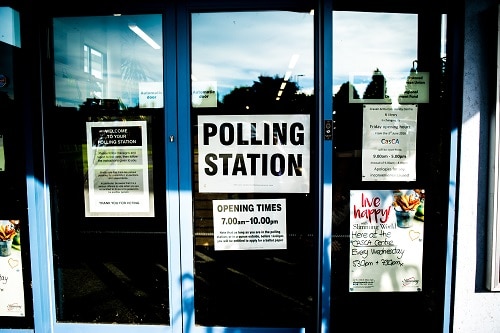The United Kingdom is a popular expat destination for many reasons, including its culture, lifestyle, benefits, healthcare, diversity, education, infrastructure, and career opportunities. Outsiders considering a move to this place should not be deterred by its high living costs, unpredictable weather, grey skies and unimaginative cuisine.
It is absolutely essential that you get all your paperwork in place if you are planning to settle down in the UK. While the procedure is relatively straightforward, it can be quite time consuming. Moreover, there are a number of things that you have to keep in mind and missing out on even one could have repercussions. It is therefore best to seek the services of a professional to guide you through the entire process.As an expat, you are probably aware of the immigration formalities you need to complete in order to become a resident and seek employment in the country. However, a lot of foreigners only realize that they are legally obligated to apply for a National Insurance Number when they are about to start working. Read on to know more about this important procedure.
What is National Insurance?
The system of taxes paid by all the employers and employees in the UK is called National Insurance or NI. It is mainly used for the funding of state benefits. Initially, National Insurance was a contributory system of insurance, which protected British employees against illness and unemployment. Over a period of time, retirement pension plans and other benefits were also included in the system.
A person is required pay National Insurance if they are over the age of 16 and either:
• Earn more than £ 157 per week as an employee, or
• Make a profit of £ 6,025 or more a year, being self-employed
British residents stop making National Insurance contributions when they reach the state pension age.
To be able to make the payments, you will need a National Insurance Number, commonly known as an NI Number. This is a personal number that is issued to you by the Department of Work and Pensions (DWP), so that records of your taxes as well as your National Insurance deductions can be tracked and maintained. Since its introduction as a part of the National Insurance Act in 1911, it has been an obligatory part of the working in the country. This number ensures that every citizen over the age of 16 that is legally employed pays regular contributions towards healthcare, welfare, and state pension services.
What is a National Insurance Number?
The NI number is a unique alphanumeric code given to anyone who is eligible for National Insurance. This number remains the same for the rest of their life, even if they change their name, move, get married or divorced, take up a new job, or emigrate. It helps the authorities maintain records of their contributions and taxes for every legal job they have held during their lifetime. The number also gives a person access to National Health Service (NHS) as well as other benefits and allows them to register for voting in the UK elections.

If you are the citizen of a country that has a bi-lateral agreement with the UK on Social Security, you neither need to make NI contributions, nor obtain an NI number. These nations include the US, Canada, Isle of Man, Jersey, Barbados, Bermuda, Jamaica, Bosnia and Herzegovina, Serbia, Israel, Japan, Guernsey, the Republic of Korea, Mauritius, Macedonia, Montenegro, Turkey, and the Philippines.
When to apply
It is possible for you to apply for a National Insurance Number once you move to the UK and have a postal address, as well as a telephone number. Some expats don’t have their NI number when they start working but this is not a problem as their employers can provide them with a temporary number. You could commence working before the number arrives, but do make sure that you fill in the application shortly after that. You will need to provide some form of evidence that you have an offer in hand or are applying for jobs when you register for the number.
Do keep in mind that there is no legal requirement for you to have a National Insurance number before you start working. Legally, you are entitled to your wages and your employer is obligated to pay you, even if you do not have this number. However, its absence means that you will be taxed at a high “emergency” level rate. Once you get the number the tax rate you were charged gets revised and your employer should refund the amount you overpaid as tax. Unfortunately, getting the rebate could take a while and it is not a very straightforward process.
How to apply
All British citizens are automatically given an NI number just before their 16th birthday. Those who do not receive it within a few weeks of their 16th birthday are required to call the helpline as soon as possible. After the age of 20, the application procedure changes.
Outsiders moving to the UK sometimes have the number printed on the back of their Biometric Residency Permit (BRP). If this is the case and you already have a number, you don’t need to apply for it on arrival to the country. Only expats with the right to study or work in the UK can become a part of the National Insurance system once they move. Applying for it from overseas is not an option. Below are the steps you need to follow.
1. Call Jobcenter Plus on 0345 600 0643 (or 0845 600 0643) to initiate the process. The lines are open from 8:00 am to 6:00 pm, Monday to Friday. The operator will ask you a few questions about your employment and residential status to set up your interview. You will also need to know the location of the nearest Jobcenter office so keep the London A to Z handy.
2. If you are a citizen of the European Union, Jobcenter Plus will get the Evidence Of Identity (EOI) interview organized for you. The agent will confirm the date, time and location of the interview before informing you about the documents you need to carry. If you are not an EU National, they will send you an application pack. You need to fill all the forms and send it back to the address mentioned, along with the required paperwork. Jobcenter will then write to you (by text and mail), asking you to attend the interview.
3. Bring your original documents, along with a few copies, to your interview.
Typically, the application process takes weeks or even months from the start to the end so be prepared to wait for a while. However, if you do not receive the number after two months or so, get in touch with Jobcenter Plus again.

You may come across a number of private companies claiming to help simplify the process of obtaining your National Insurance Number for a nominal fee of around £30 or so. Many of the agents assure customers that they can verify your documents beforehand to save time and perhaps even complete the formalities without you having to go to the Jobcenter Plus office for the EOI interview. Such services are recommended for expats who are planning to work in the UK but do not have sufficient proof of address (as they are living with family or friends). However, some of these setups are not authorized and may therefore not provide the service they are offering. If you do plan on seeking expert help to get the NI number, make sure it is from a licensed professional.
Documents required for the interview
It is essential for you to bring all the documents related to your identification, residence and employment when you go for your interview. These include:
• Passport or identity card (such as a driving license)
• Residence permit
• Birth certificate (or adoption certificate)
• Marriage / civil partnership certificate
• Driving license
• Work contract
• Proof of college admission or employment
• Proof of address
The person who conducts your interview may ask you a few questions about the reason you need the National Insurance number. They will also check if all your papers are in order. Be prepared to fill in a few more forms at the office. At times, applicants are asked to provide additional information by a certain date.
The agent will probably let you know how long it will take for you to receive your National Insurance number. In the past, HM Revenue and Customs used to issue a plastic National Insurance card. However, these are no longer sent, so you need not be worried if you don’t receive one. A letter is good enough and expats are advised to file this in their records as proof.
Once you receive the number, it is up to you to ensure that all your taxes and contributions are recorded against your name. You can also find your NI number on:
• Your payslip and P60
• A copy of your self-assessment tax return
• Any letters related to your tax, benefits or pension
• The National Insurance part of your personal tax account
If you lose the card and have no documents that list your NI number, call the National Insurance Helpline on 0300 200 3502 and answer a few questions so that they can resend the information to you.

Other options include filling in the CA5403 form on the official website of the UK government and sending the printed version to the office. No one can give you this information over the phone or online, so you will have to wait for the authorities to send you a written confirmation of your number via mail. This should take approximately 10 working days.
Entities that need your National Insurance Number
Once you receive your NI number make sure that you keep it safe; do not disclose it to anyone who does not require it. However, the people and bodies that should have this information include:
• HM Revenue and Customs
• The DWP (if you claim state benefits)
• The Department for Social Development if you are a resident of Northern Ireland
• Your employers
• The local council (if you claim housing benefit)
• Electoral Registration Officers
• The Student Loan Company (only for students who have taken out a loan for their education)
• Your pension provider (in case of personal or stakeholder pension)
• The Individual Savings Account (ISA) provider, if applicable
• Authorized financial service providers who assist you with your investment portfolio
If you are not sure whether a particular organization needs you NI number, it is best to kep it confidential, to prevent identity fraud.
National Insurance Number proof
You will receive a letter informing you about your National Insurance number. It is best to keep this document safe, even though it is not recognized as proof of identification, employment or residential status.
Other documents that are accepted as evidence of your National Insurance number include:
• P45 and P60
• Letters from HMRC regarding taxes or tax credits
• Bank statements showing direct debit payments for Class 2 National Insurance contributions or benefit payments showing the NI Number
• Payslips, salary statements, or work pension statements, if they bear the number
• Letters from Jobcenter Plus or the Pension Service
• The National Insurance card (discontinued for new applications)
When required, most people just take a print-out of the letter confirming their National Insurance numbers from their personal tax accounts. For this you have to go through the procedure to set up your account and log in. If you know the number and just need a print-out, you can do this here.
The procedure to apply for a National Insurance Number has undergone a few changes in the recent past and may be further revised. It is therefore best to check the government’s website for updates.

